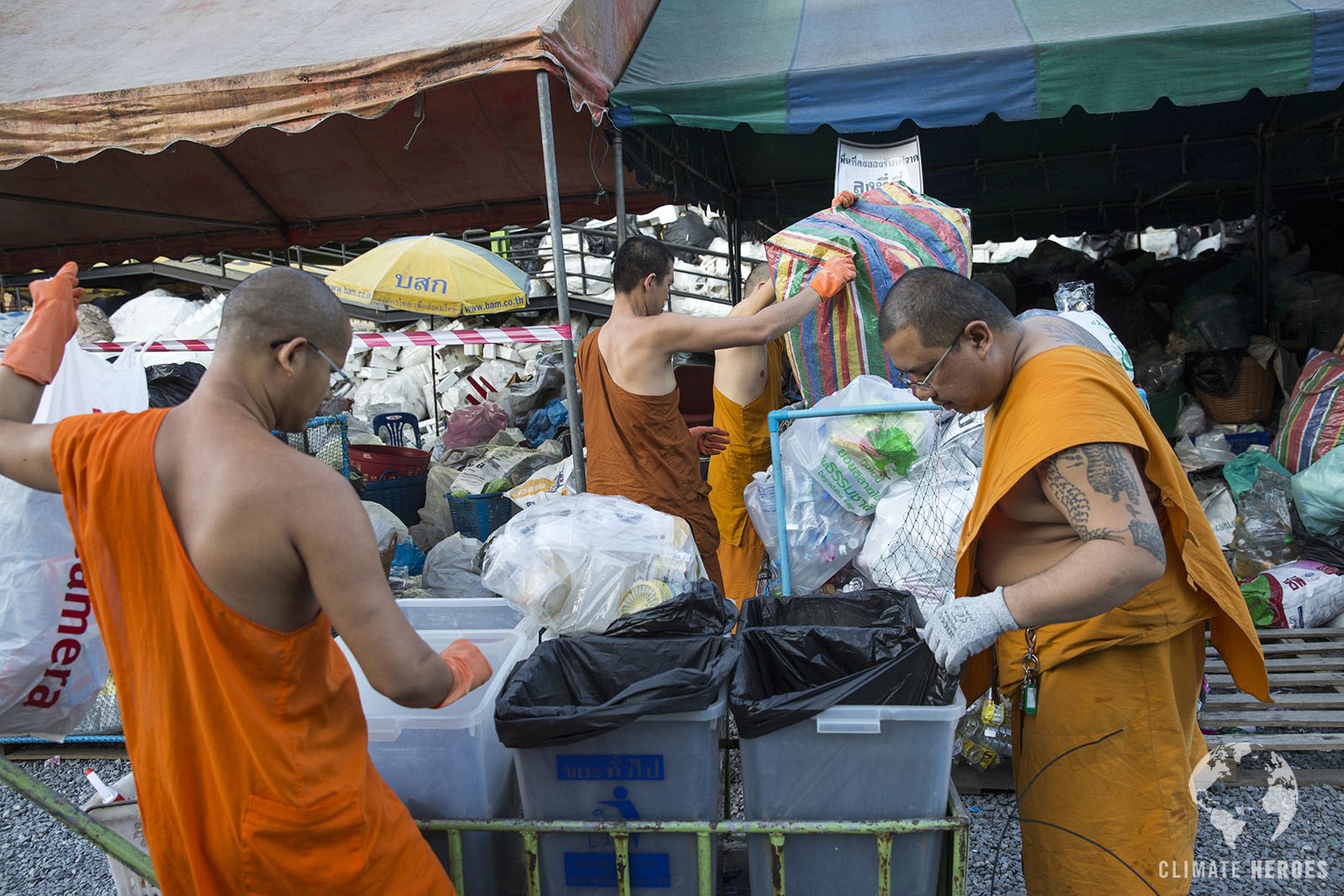Buddhist monk helping to clean plastic from River of Kings
Buddhist monk helping to clean plastic from River of Kings
วันที่นำเข้าข้อมูล 16 Sep 2024
วันที่ปรับปรุงข้อมูล 16 Sep 2024

Buddhism teaches that nothing is permanent, and that includes plastic. At a riverside temple in Bangkok, a Buddhist abbot is putting that teaching into practice by teaming up with an environmental group to deploy and operate a machine that scoops up tons of plastic waste from the Chao Phraya River.
“Once upon a time, this river was filled with fish. Now, nothing swims in it anymore,” said Phra Mahapranom Dhammalangkaro, the abbot of Wat Chak Deang, a 240-year-old temple on the bank of the Chao Phraya River.
Also known as the River of Kings, the Chao Phraya winds from northern Thailand through the capital city before spilling into the Gulf of Thailand and the sea. Since the Kingdom’s industrialization several decades ago, however, the Chao Phraya, like many of the region’s rivers, has become a conduit carrying plastic and other pollution to the oceans.
“I want to take the waste from the river before it goes to the sea,” says Dhammalangkaro.
At the regional level, Thailand has been a leader in reversing this phenomenon, rallying the ten countries of the Association of Southeast Asian Nations (ASEAN) to sign an agreement to prevent and clean up marine pollution.
At the local level, decisive action is also required, and Dhammalangkaro began taking it after meeting Tom Peacock-Nazil of Seven Clean Seas, an organization which develops solutions for plastic pollution.
Together, they deployed a barge-like vessel named HIPPO: High Impact Plastic Pollution remOver. It contains a solar-powered conveyor belt that carries floating plastic into its hull. When full, the plastic is removed, sorted, and taken for recycling.
“When people see the HIPPO, it will make them curious,” said Chalatip Junchompoo, Director of the Marine and Coastal Resources Research Center. “They will want to know what it is and why it’s there.”
Some of the recycled plastic is converted into fabric and sewn to make the saffron robes worn by Buddhist monks. Robes are among the items parishioners commonly donate to temples, along with food and money, as a means of making “merit” that they believe could earn them better karma or a better existence after reincarnation.
So Dhammalangkaro is using faith to protect his beloved river and urging followers to adjust their donations to changing times and needs.
Instead of donating food or robes, “people can make [Buddhist] merit by giving us plastic bottles, bags and paper,” he said.
Photo courtesy of https://climateheroes.org/
สถานเอกอัครราชทูต ณ กรุงวอชิงตัน
Consular Office (ฝ่ายกงสุล)
2300 Kalorama Road, N.W. Washington, D.C. 20008
Office Hours
Monday - Friday 09.00-17.00 hrs.
Official Holidays
Official Holidays